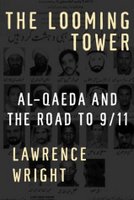social medicine can make you famous!!
okay.. maybe not famous.. but I at least made it on the first part of this channel 5 news segment! hooray!
http://www.ksl.com/index.php?nid=148&sid=685722

Because there is so much more to talk about than just physiology. What's on your mind?
okay.. maybe not famous.. but I at least made it on the first part of this channel 5 news segment! hooray!
From the reality t.v. show "Beauty and the Geek":

 I figured I should start contributing some non-mass apology/sickness related whining posts, so I give you the following UGMAs (Unusually Good Movie/Music Alerts).
I figured I should start contributing some non-mass apology/sickness related whining posts, so I give you the following UGMAs (Unusually Good Movie/Music Alerts).I'd have to nominate fatal familial insomnia to the list. Fortunately it's very rare, but not too rare to be mentioned in our behavioral science text (p. 109). Basically, you can't sleep AT ALL, and end up dying after up to a year and a half of hell. Prion disease, autosomal dominant, age of onset around 50... more info at Wikipedia. I first heard about it on NPR a couple days ago.

Anyone had a flu shot yet this year? If so, did you get it on campus somewhere? I've had one every year since 1997.

Thanks to all involved with the potluck. We had a good turnout. And who cooked the incredible enchiladas? Por Dios...



A timely report from LiveScience....
How does everyone feel about the "Diary of A Gunner" currently running on UMED, including the disclaimer? I have gotten complaints from members of our class who think it is offensive and portrays the UMED students poorly, since UMED is publicly accessible. I need some more opinions though - what do you think?
So, the elderly population is connected with their cultural elements...Lawrence Welk...you know, old-timer stuff. What about us? Will our cohort be jamming to Jay-Z, Nine Inch Nails, and U2 when we are old? Will our kids look at our music choices like we look at our parent/grandparents' music? Will they roll their eyes when we roll down the windows, hit the gas pedal, and sing "Where the Streets Have No Name" at the top of our aging lungs?
Don't the latest Chevy Truck commercials seem like clips right out of a Republican campaign ad. I don't like John Mellencamp very much either. It just seems like they have their conservative right audience all picked out to buy their trucks.
I just saw the last half of a 20/20 story on women's paid family leave. The USA is one of four countries (Papua New Guinea and Lesotho are other examples) that do not offer government-funded paid leave for women. Iran and North Korea both have better benefits for their women.
We're all committing ourselves to careers of altruism. I thought we should be informed of two theories of its origin.
TIME: Dr. Collins, you have described humanity's moral sense not only as a gift from God but as a signpost that he exists.
COLLINS: There is a whole field of inquiry that has come up in the last 30 or 40 years--some call it sociobiology or evolutionary psychology--relating to where we get our moral sense and why we value the idea of altruism, and locating both answers in behavioral adaptations for the preservation of our genes. But if you believe, and Richard has been articulate in this, that natural selection operates on the individual, not on a group, then why would the individual risk his own DNA doing something selfless to help somebody in a way that might diminish his chance of reproducing? Granted, we may try to help our own family members because they share our DNA. Or help someone else in expectation that they will help us later. But when you look at what we admire as the most generous manifestations of altruism, they are not based on kin selection or reciprocity. An extreme example might be Oskar Schindler risking his life to save more than a thousand Jews from the gas chambers. That's the opposite of saving his genes. We see less dramatic versions every day. Many of us think these qualities may come from God--especially since justice and morality are two of the attributes we most readily identify with God.
DAWKINS: Can I begin with an analogy? Most people understand that sexual lust has to do with propagating genes. Copulation in nature tends to lead to reproduction and so to more genetic copies. But in modern society, most copulations involve contraception, designed precisely to avoid reproduction. Altruism probably has origins like those of lust. In our prehistoric past, we would have lived in extended families, surrounded by kin whose interests we might have wanted to promote because they shared our genes. Now we live in big cities. We are not among kin nor people who will ever reciprocate our good deeds. It doesn't matter. Just as people engaged in sex with contraception are not aware of being motivated by a drive to have babies, it doesn't cross our mind that the reason for do-gooding is based in the fact that our primitive ancestors lived in small groups. But that seems to me to be a highly plausible account for where the desire for morality, the desire for goodness, comes from.
COLLINS: For you to argue that our noblest acts are a misfiring of Darwinian behavior does not do justice to the sense we all have about the absolutes that are involved here of good and evil. Evolution may explain some features of the moral law, but it can't explain why it should have any real significance. If it is solely an evolutionary convenience, there is really no such thing as good or evil. But for me, it is much more than that. The moral law is a reason to think of God as plausible--not just a God who sets the universe in motion but a God who cares about human beings, because we seem uniquely amongst creatures on the planet to have this far-developed sense of morality. What you've said implies that outside of the human mind, tuned by evolutionary processes, good and evil have no meaning. Do you agree with that?DAWKINS: Even the question you're asking has no meaning to me. Good and evil--I don't believe that there is hanging out there, anywhere, something called good and something called evil. I think that there are good things that happen and bad things that happen.
COLLINS: I think that is a fundamental difference between us. I'm glad we identified it.
From Time.com (cover story of latest issue)As the author noted, spiritual issues arise frequently in the care of dying patients, yet health care professionals may not recognize them, may not believe they have a duty to address them, and may not understand how best to respond to their patients' spiritual needs. In distinguishing spirituality from religion, Sulmasy described the salient spiritual needs of patients at the end of life, delineated the role physicians ought to play in ascertaining and responding to those needs, and discussed the particular issue of hope for miracles, concluding that expectations of miraculous cure ought not preclude referral to hospice care nor force a plan of curative treatment (eg, chemotherapy) that a team believes to be futile. Better understanding of Mr W's beliefs and more explicit conversation regarding spiritual matters between the patient and his treating team might have provided opportunities for an improved plan of care, including enrollment in hospice.
From CNN:
which is more powerful: a hurricane or coach ditka? what if the hurricane's name is ditka?
I would encourage everyone to read the cover story of the latest Time Magazine. Its about Dubya Bush and the election. (Its my first issue...I'm a subscriber now--thanks for the suggestion Todd!) I didnt realize what a political precipice we are teetering on. I am excited for some change. I think most Americans are. The most potent part of the article for me was the presidential approval rating since 9/11. I don't think its a coincidence that most Americans feel the country is going in the wrong direction.